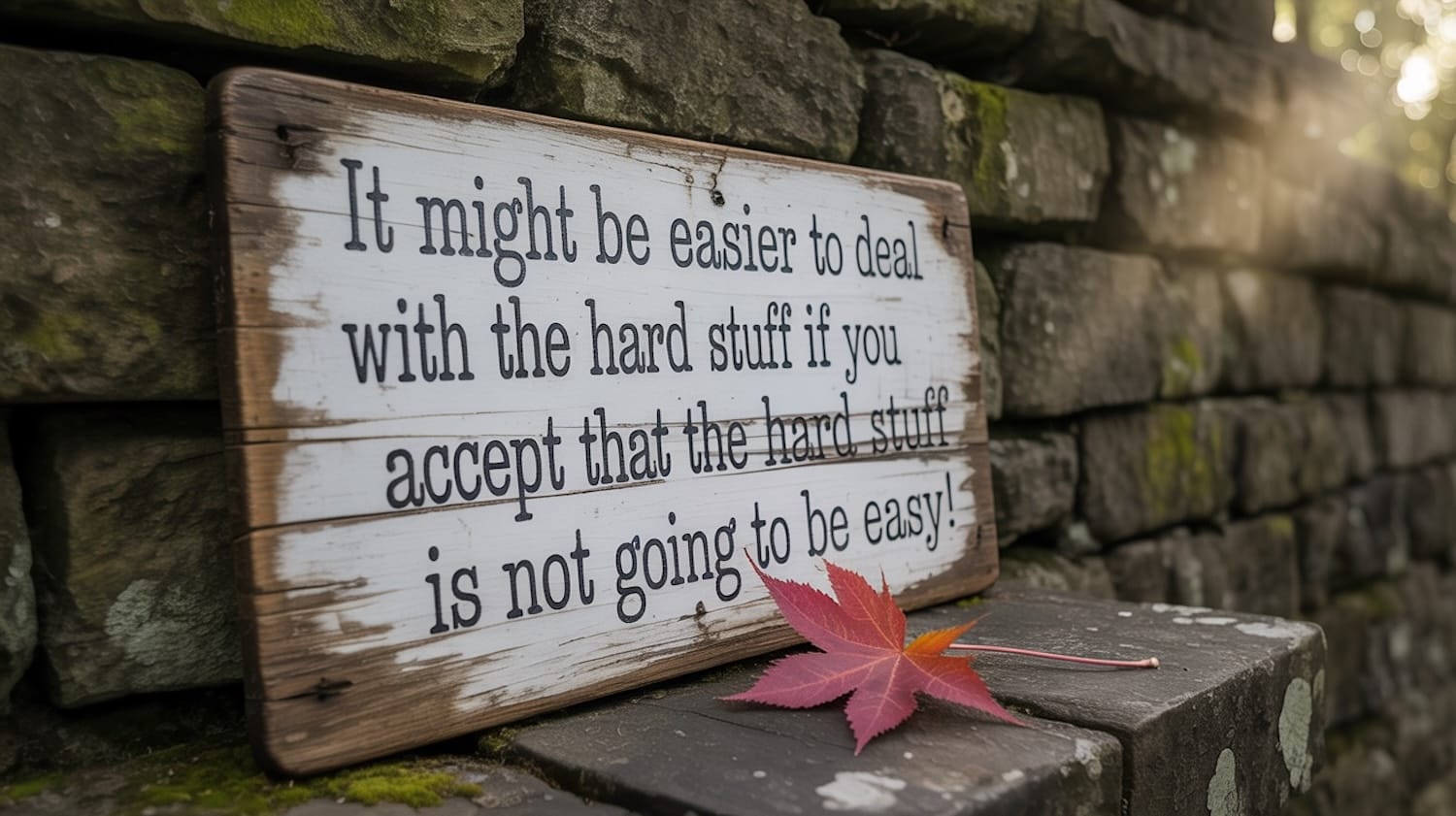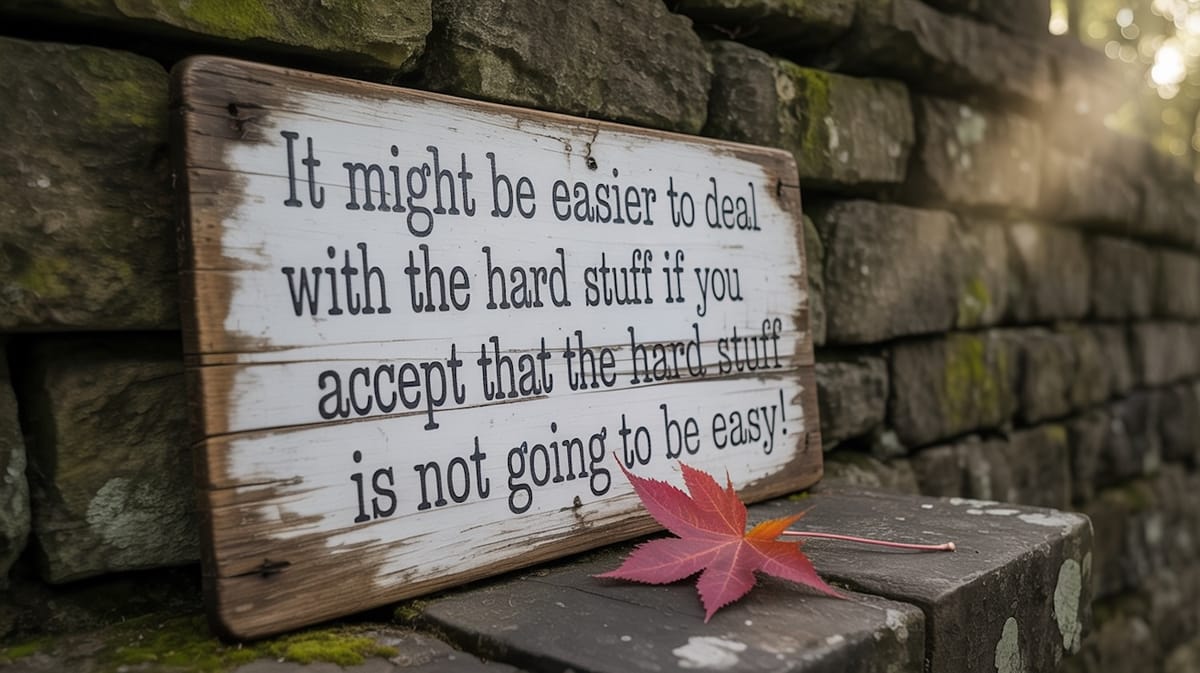"It might be easier to deal with the hard stuff if you accept that the hard stuff is not going to be easy." - Futurist Jim Carroll

I was working yesterday afternoon on today's post, which will be Megatrend #27. Here's a sneak peek:

It's turned into an incredibly complicated post, and I have an early tee-time, so I decided to move it back to Friday! It is the summertime, after all! The post includes a pretty hard-hitting analysis of what I predicted in 2017, and where we find ourselves today. Let's just say, sadly, that I was stunningly accurate. More tomorrow.
So instead, I turned to my folder-inventory of inspiration quotes - the little thoughts that run through my head that I jot down - and came across this one. It seems to fit the times for many people who are going through challenges, and recognizes the fact that we can we can overwhelm ourselves when we are in the moment. I'm not sure of the context of the time that I jotted it down - I'm sure I was probably struggling with some complex moment of my own.
That said, the phrase is a good foundation for the reality of what happens when people try to get to the future without putting in the work, which relates to the core idea of the post I'll share tomorrow. While I've been writing the post I'll share tomorrow, I keep coming back to the idea that there's a seductive myth that keeps organizations stuck: the belief that the future will somehow be easier than the present. Those breakthrough innovations will simplify everything. That there's a silver bullet solution waiting around the corner. That waving a magic wand will simply bring back the success that once existed. All of this avoids the idea that you've got to put in the work.
There seems to be a core belief behind much of this that simply pretending the future doesn't exist will somehow bring back the magical success of the past. This couldn't be further from the truth. Building the future requires embracing complexity, hard work, and decisive action in the face of uncertainty. That's what's missing in the current discourse.
So here's the hard truth about building the future and why easy solutions don't exist.
- New technologies, ideas, and methodologies are expensive to implement and extremely difficult to integrate into existing processes. For example, that AI system won't magically slot into your workflow. Digital transformation requires rethinking fundamental assumptions about how work gets done. Rebuilding a new manufacturing process to 'bring the jobs back' isn't some simple process and won't happen overnight - if at all.
- The most difficult aspect of preparing for the future is acknowledging disruptive truths. There's a belief that once great. always great; that past success demands the same future results. But things have changed - globally, it's a new world. Many people resist these revelations, preferring familiar narratives. But denial prevents progress.
- Organizations and people often fail to adapt because they craft excuses for inaction. "We need more data." "The timing isn't right." "Leadership needs buy-in." Stop letting excuses define your destiny.
- If you're comfortable with your vision of the future, based upon what you know from the past, you're not thinking hard enough about impending trends. The future should feel unsettling because it represents genuine change. Fear stems from a lack of understanding.
- Ideas without initiative are empty. In a world of accelerating change, imperfect action beats endless analysis and inaction. The future belongs to those who act, experiment, learn, and adapt—not those who craft perfect plans but never execute them.
Building the future involves embracing complexity, doing hard work, confronting uncomfortable truths, and acknowledging reality. There's quite a bit of that missing right now.
More tomorrow!
Futurist Jim Carrol, by his job title, puts in the work.

